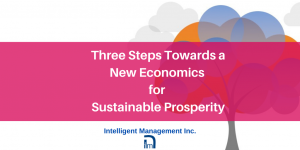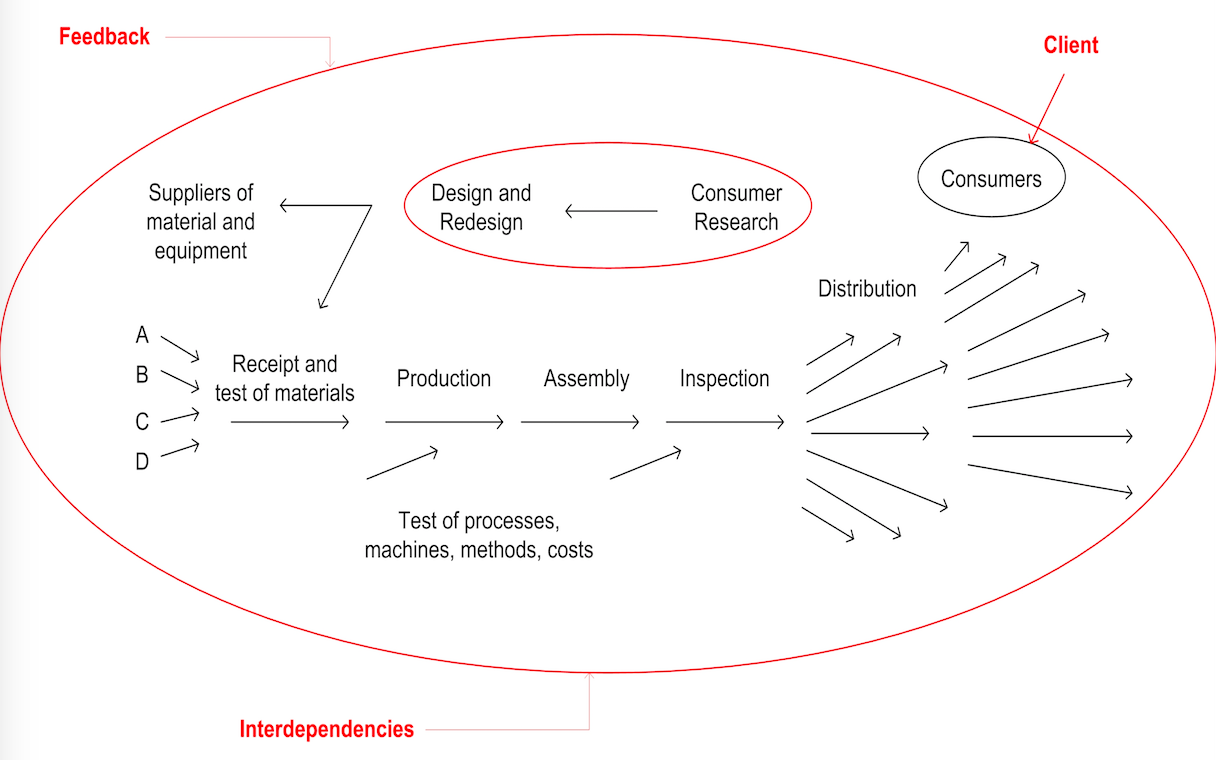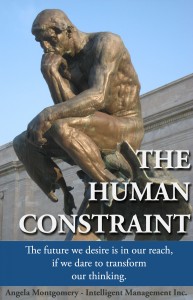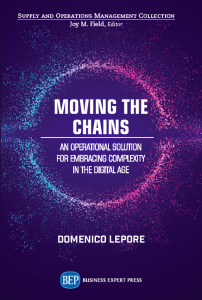
2020 has been a year of unexpected losses and shocks in so many fields. How can we move forward in a way that can truly help us to rebuild without repeating old mistakes? How can we make sure that any “new solutions” introduced can be for the benefit of everyone and not just a tiny minority? How can we make sure that this crisis becomes the gateway not just to a “new normal” but a better way of living together with the resources we have? A Cambridge professor has suggested that this COVID-19 epidemic has revealed the uselessness of orthodox economics. We have felt that way for many years. Based on over two decades of work with a systemic approach to management, we would like to suggest three steps towards a new economics for sustainable prosperity.
Step One: Start learning about how a mechanistic world view is out of date
Our reality has changed. We live in an age of complexity. This requires new knowledge, new ways of understanding, behaving and managing. The problem is that most organizations are still based on models of reality that are ‘mechanistic’ and out of date. In other words, as long as companies and business school programs exist within silos and traditional command and control hierarchies they will always be sub-optimizing. On top of that, people try to “deal with” complexity in a mechanistic way by simplifying it, cutting it up into more mechanical pieces. This reflects a complete lack of understanding of how parts and the whole interact.
Operating successfully with complexity means seeing that today we coexist with unprecedented levels of interdependencies. It is no longer true that the whole is the sum of the parts because interactions in complex reality lead to emergent properties. These are new realities that emerge from the interaction of parts and that are more than and different to the parts themselves. Attempts to simplify reality, such as the UK breaking away from the European Union, are attempts to turn the clock back to a simpler time, but that is just not possible.
An excellent book for learning more about complexity and emergence is The Emergence of Everything: How the World Became Complex by H. Morowitz.
Step Two: Start learning about how a systems view of the world is the most appropriate for our age of complexity
When we acknowledge this new interpretation of reality as complex, we inevitably see the need for an appropriate way of thinking, organizing, and acting. This cannot be the same way of leading and managing that was appropriate for a mechanistic world. What can we use instead? The answer has been around for some time now.
What leaders and managers need to learn from science is that organizations are inherently systems, i.e. an integrated whole and the properties of this whole derive from the interrelations among its parts.
This understanding applied to organizations was already clearly demonstrated by W. Edwards Deming, the founding father of the quality movement, in the 1950s in his famous sketch of “Production Viewed as a System.” Understanding organizations as systems means understanding and managing them as a whole (holistically) in context and in relation to the value chain of suppliers, customers and all stakeholders, certainly not just shareholders. This entails understanding and mapping interdependencies and a need for win-win collaboration inside and outside the organization.

The historical shift towards a systemic world-view is presented in Fritjof Capra’s book ‘The Systems View of Life: A Unifying Vision’.
Step Three: Start learning about how collaboration beats competition
In conventional functional hierarchies, people need to collaborate to achieve results, but this collaboration is greatly impeded by:
- separation into silos
- cost accounting measurements that discourage a flow of collaboration
- competition among members of staff because they are measured (and promoted up the ladder) based on local considerations instead of the global achievement of the goal by the organization
Competition is drilled into people’s minds from an early age and compounded by awarding grades and a series of certificates and badges. To quote Dr. Deming, “Ranking creates competition between people, salesmen, teams, divisions. It demoralizes employees…The merit system destroys cooperation.”
The job of management is to manage and enable cooperation. Paradoxical as it may seem, in today’s complex reality cooperation needs to happen even among ‘competitors’ because the name of the game is expanding the market, making a bigger pie instead of fighting to gain existing market share. This requires breakthrough, innovative thinking (see the Thinking Processes from the Theory of Constraints.)
We heartily recommend everyone to read Deming’s ground breaking ‘The New Economics: For Industry, Government, Education ‘ for a fully articulated vision of a systems-based approach to management and economic life.
In our next post, we’ll be looking at two more fundamental steps in a shift towards a new economics and how network theory and science can assist us in finding new ways to operate practically as organizations within a new mindset for sustainable prosperity.
Contact: intelligentmanagement@sechel.ws
SCHEDULE AN INTRODUCTORY CALL WITH US ‘







Leave a Reply